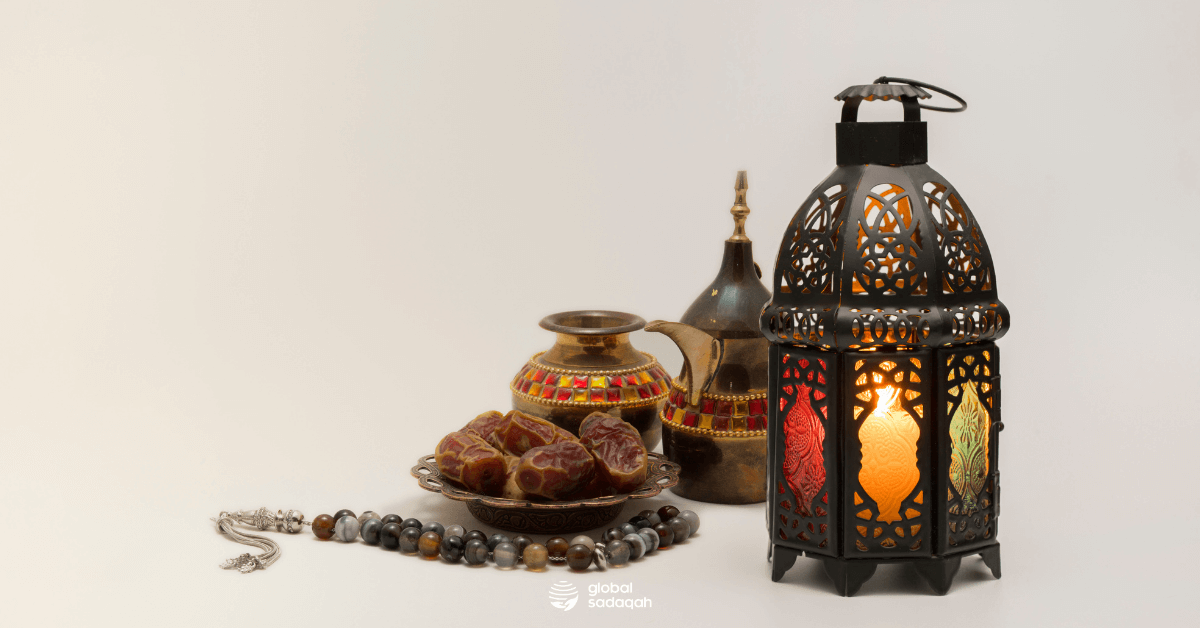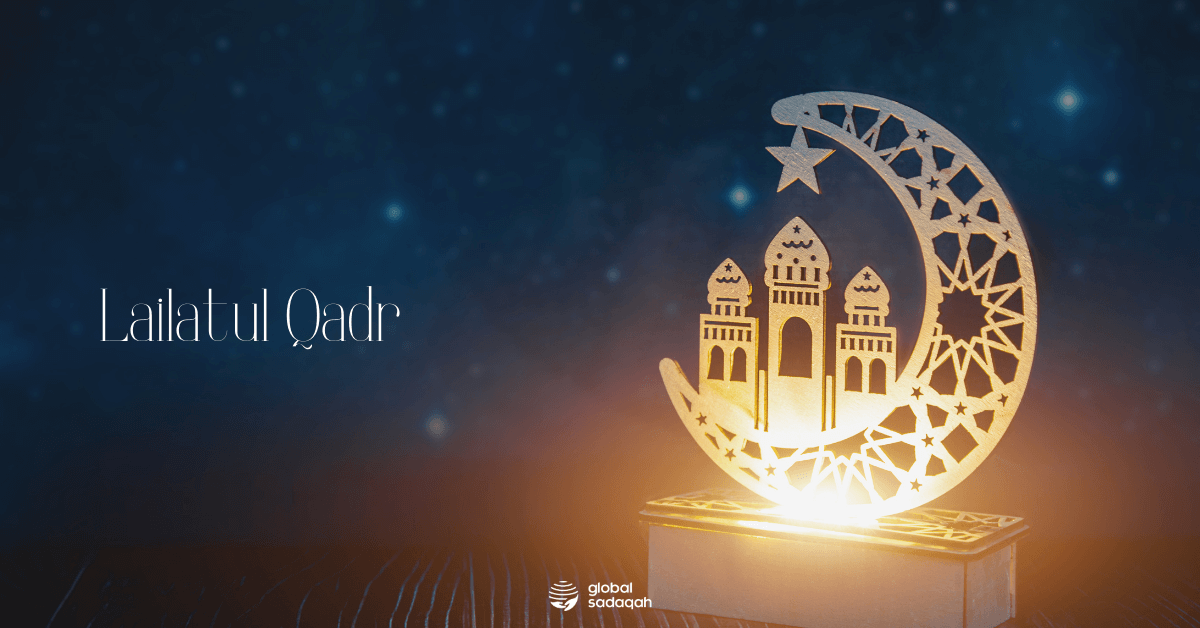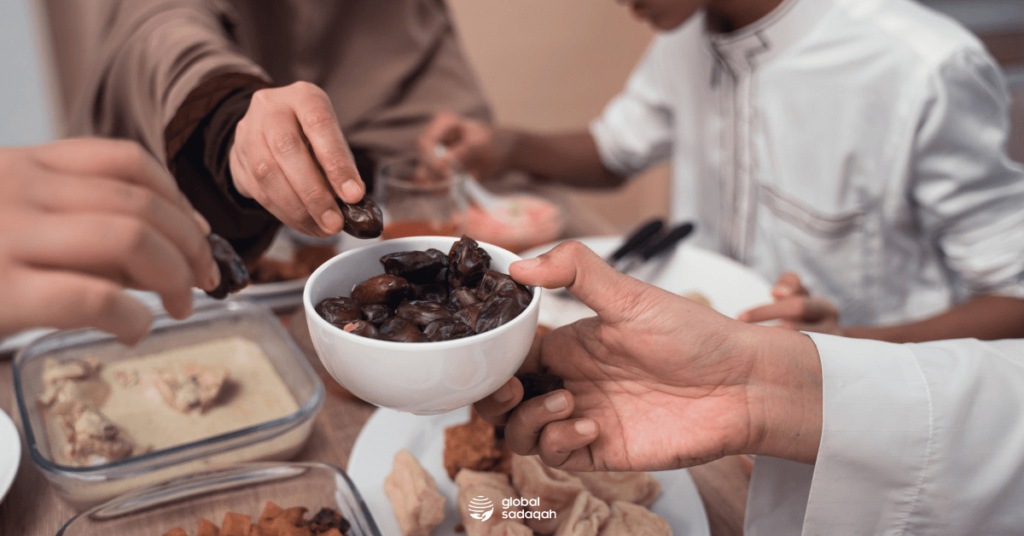Intention to Fast
The obligatory fasting in Ramadan is not considered valid unless a person has made known their intention by reciting a dua to affirm the intention to fast during some part of the night.
The purpose of making our intentions clear—before any deed for that matter—is to remind our inner selves of our intention which is to seek the pleasure of God in all our actions.
What is making an intention?
A vow, indication or thought that crosses your mind at any part during the night that you’re fasting the next day during Ramadan is a valid intention. There is no need for a specific intention or dua just before Fajr adhan.
It’s not necessary to make the intention before Fajr for involuntary fasts. As long as something which invalidates the fast is not present or has not been present then the intention for it can be done at any point in time even if it’s an hour before Maghrib, the fast will still be valid.
The reward of course differs from the one who fasted the whole day and the one who started later is different.
Why is fasting in Islam important?
During Ramadan, fasting is the main event throughout the holy month. It is the fourth pillar of Islam and a mandatory act upon all adult Muslims who are past puberty and who are mentally and physically capable of performing it.
In practice, it involves abstinence from food, drink, smoking, and sexual activity from dawn (fajr) to dusk (maghrib). This means a person should not consume any type of nutritional value during these fasting hours including injection shots or drips.
Accordingly, Muslims often consume a meal before dawn called “Suhoor” to sustain them through the day until dusk when the fast is broken in a meal time called “Iftaar” which translates to breakfast.
Beyond the food, fasting also includes a fast from bad habits and harmful traits; Muslims are to maintain their tongues, gaze, as well as their actions to be only that which is favourable.
Spiritually, the act of fasting is meant to inspire compassion to those of lesser means and the less fortunate by experiencing what it is to refrain from the privileges held in life and be thankful for what one already possesses.
Fasting is also meant to generate self-control over one’s actions and self-reflection where one could step back and reevaluate one’s actions and lifestyle.
Invalidators of the Fast

1) Things that enter the body
- Whoever inserts/injects anything into the body or a body cavity like the brain, throat, the inside of the vagina or anything similar that leads to the stomach from any location, other than the urethra, this invalidates the fast.
- The Hanabila holds that one’s fast is invalidated if liquid or something reaches the throat but not the stomach because it is impossible to know if it went further or if it reached the stomach or not.
- Some of the scholars say since this is unrelated to food and drink this doesn’t break the fast and this is just qiyas. Of those who hold this position is Ibn Taymiyyah who says that Allah has made fasting invalidated only through food or drink or its likes.
- So even if things reach the stomach it doesn’t break the fast. The vast majority of the scholars disagree with this and say it invalidates the fast as the Prophet ﷺ showed us that it’s not just the food and drink that breaks the fast. “Exaggerate in rinsing the mouth unless you’re fasting.”
- If a person swallows phlegm which could have been spat out, then this breaks the fast. Saliva is excused as that is second nature and because of its common occurrence.
- Sometimes spitting out phlegm is not possible, and this, scholars say is closer to saliva and can also be excused. Even better to avoid swallowing phlegm as and when possible.
- The asl is that nothing breaks one’s fast except for what the Shariah says breaks the fast. So, for such grey areas, there is some scope and flexibility where the scholars say that the fast is complete and valid.
2) Vomiting

If someone induces vomiting (this is based on the hadith about vomiting whose authenticity has been disputed), this invalidates their fast and it has to be repeated. If the vomiting occurs naturally then the person may resume their fast and complete the fast.
3) Sexual activity
- If someone masturbates (cause to ejaculate semen) either by using the hands or any other means, then this breaks the fast. According to the Hanabila and the majority of the fuqaha, masturbation is haram unless done by a spouse to the other.
- Masturbating by itself doesn’t break the fast but the ejaculation of semen does. What was a minor sin (masturbation) now becomes a major sin. This requires a person to complete the fast for the rest of the day and make it up after Ramadan.
- According to the Hanabila even pre-seminal fluid (madhī) breaks the fast. Sheikhul Islam opposes this and says that even though there is an indication of desire, only the act of ejaculation breaks one’s fast. Just a desire doesn’t break the fast unless semen is emitted.
- If a person looks repeatedly at a woman and ejaculates, then this invalidates their fast. If you look once and ejaculate, then this doesn’t break the fast because the first look isn’t wrong. In this case, manī breaks the fast and not madhī.
- Strictly speaking, sexual acts that break fast include sexual intercourse or ejaculation. Scholars say acts of foreplay such as kissing, excessive touching, fondling, snogging etc. may lead to intercourse or such an act then it becomes impermissible to do so as well.
- Ejaculation that occurs due to sexual thoughts but without masturbation doesn’t break the fast.
- Whoever has intercourse in the daytime of Ramadan without the overwhelming need (dire/medical need) for it or similar to it, must make up for that fast and pay an expiation for it. Additionally, the fast needs to be completed for that day.
- The expiation is to free a slave but if it’s not possible, then the person needs to fast for two consecutive months or 60 days, which equals 60 people or 60 meals, for the one who cannot fast for 60 days.
- The term مطْلَقًا means to make up for it and the expiation has to be given irrespective of whether the act was done out of forgetfulness, ignorance etc., according to the Hadith of the man who came to the Prophet ﷺ telling him about having intercourse while fasting. Other fuqaha allow forgetfulness but each madhab is very strict on the matter.
- Instances that allow for masturbation is an illnesses where a person could experience severe harm to his testicles if he doesn’t ejaculate. The Hanabila say that if harm can be overcome through masturbating then that should be done, or the wife masturbating him till the semen is released but intercourse would remain impermissible.
- The same applies to a woman in her period. The husband is allowed to have intercourse with her in such a state of illness/desire so as long as there is no other option available at all.
- The woman must pay the expiation and fast for two consecutive months unless she is asleep, and the husband has intercourse with her, or she’s forced, ignored or forgetful. She must then repeat the fast even if she doesn’t have to pay the expiation for that day.
- Even if she doesn’t know about the expiation but knows that intercourse breaks the fast, she is still liable to pay for the expiation. If the fasting for the expiation has begun from the beginning of the month then even if both the months are 29 days each which totals to 58 fasts, the expiation is still valid.
- But if the fasting has begun in the middle of the month then the person needs to fast for 60 consecutive days. If a person is unable to fast for two consecutive months, then alternatively, they can feed 60 poor people in that month. If all of the above cannot be done, then the obligation and ruling no longer hold as per the madhab.
- It’s also disallowed for someone to kiss, among other similar acts, as it can lead to a person’s desires being moved. If he believes this could lead to intercourse or ejaculation, then this kind of kissing or touching becomes Haram upon him.
4) Acts and intentions
If a person has the firm intention to break their fast, then this act invalidates their fast. It’s not the desire of wishing to do something but rather resolving to do it that breaks the fast. Fasting is still considered valid because of the intention.
5) Hijama
- People who engage in hijama either by doing the act or being the recipient of it will invalidate their fast, according to the Hadith of the Prophet ﷺ. Why does the fast of the one cupping become invalidated? This is ta’abbudi. What the Prophet ﷺ has said about hajima, we will take it without question. This opinion is from the mufradat of the Hanabila.
- However, the other three madhabs say that cupping doesn’t invalidate one’s fast. Similarly, donating blood doesn’t break fast.
- We don’t do qiyas into matters without understanding the reasoning behind it first. In Islamic law, qiyas is analogical reasoning applied to the deduction of juridical principles from the Qurʾān and the Sunnah. We go by the text purely.
- For instance, camel meat breaks one’s wudhu but eating pig meat doesn’t. Touching a non-mahram without desire but with a barrier like a glove doesn’t break the wudhu but touching the wife with desire breaks the wudhu directly as per the Hanabila based on direct contact. It’s not a matter of halal or haram but rather what the shariah has declared as an invalidator.

6) Other conditions that break fast
- One’s fast is only broken if a person does it intentionally, out of choice, and while remembering that they are in a state of fasting.
- For something to break the fast, we need to be sure that it’s reached the throat or the stomach. Ibn Muflih explicitly states this principle for the fast to be invalidated.
- Most fiqh councils today allow eye drops, nose drops, ear drops, inhalers etc because there is no certainty if it reaches the stomach. With that being said, the quantity of water that goes in our throats during wudhu or ghusl usually seems to be more than that of these drops—and is considered permissible. Those who rinse their mouth or nose during wudhu and ghusl don’t break their fast even though there is an exaggeration in it, but this still depends on the position of the Madhab.
- Scholars are of the opinion that it’s better for a person to delay the intake of their inhaler till after Maghrib—but if not, then the fast is to be broken out of need and to be repeated later after Ramadan. Other scholars say that inhalers don’t break the fast as it’s not food or drink and the quantity that may reach the stomach is negligible. According to the madhab it breaks the fast.
- Gathering saliva to swallow is makruh but since it’s part of the mouth it doesn’t break one’s fast. It’s considered makruh or disliked to taste food unless absolutely necessary. Something is no longer makruh if there is a genuine need that is not necessarily at the level of life and death. Tasting doesn’t mean eating, but just merely tasting it with the tongue. Chewing on gum that doesn’t dissolve is also considered makruh. If someone discovers taste in their throat from any of the above, then the fast is invalid. It is prohibited to chew on gum that dissolves because its pieces will reach the throat.
- During Ramadan, lying, backbiting, cursing, carrying tales and the likes are prohibited with a heavy emphasis. Plus, it’s recommended to hasten towards breaking fast and delaying suhoor—as long as one is sure that the time of Maghrib and Fajr, respectively,j has entered. When the companions like Zaid Ibn Thabit were asked about what this delay meant, they said it was enough time to recite 50 ayat of the Quran. It is also recommended to recite the dua during iftar.
Making up for missed fasts – what should you do?
It is recommended to make up your missed fasts immediately. But don’t worry because you’ll have 11 months to make up for missed fasts till the next Ramadan. Though making them up at this time is obligatory, it is highly recommended to make them up as soon as possible and also consecutively. Therefore, it is recommended that if you miss the fasts consecutively, you make them up consecutively.
It’s haram to delay one fast till the next Ramadan without a valid excuse. If a person does delay the fasts like this then the person must make up those missed fasts after Ramadan and also must feed a number of poor people equivalent to the fasts missed, according to this fatwa of the companions and the position held by Imam Ahmed.
If a person dies and he hasn’t fasted a fast of Ramadan without a valid reason, then there is no making up for Ramadan. Rather, the family must feed a poor person according to the number of days that have been missed and the money originating from the wealth of the deceased.
But if there was a valid reason due to which the fast could not be made up then nothing is required. The only necessity is to make up a vow (nadhr) and said person’s relatives can fast the days of the vow on behalf of the deceased. This is the understanding of Imam Ahmad, Abu Dawud and other scholars.
This was also stated by Ibn Umar as is recorded in the Muwatta of Imam Malik where no one prays on behalf of another person and fasting takes the same ruling. Making up for the fast is allowed only in the case of a vow because it has explicit evidence backing it up. This is an exception to the general rule for physical acts like salah and fasting which is that we don’t make up.
If a person has passed away and had made a vow, then it is recommended for his inheritor to make it up on his behalf. If, however, the deceased person has left money then that should be used to complete the vow, for this vow is a debt to Allah. It is not obligatory for the inheritor to do the acts themselves, rather someone else can be appointed to do it in their stead.
Recommended types of fasts
It is recommended to fast the White Days of the month which are the 13, 14 and 15 of the lunar month. The exceptions to this are the months of Ramadan and Dhul Hijjah (prohibited to fast the 13th day (ayyam at-tashreeq)).
Sunnah is to fast any three days in the month as this is what the Prophet taught the sahaba but it is even more recommended if these three days are the three white days. The reason why it’s called white days is that the moon is at its fullest on these three days. It is recommended to fast Thursdays and Mondays and the six days of Shawwal.
Abu Aiyub Al-Ansari narrated that The Messenger of Allah ﷺ said:
مَنْ صَامَ رَمَضَانَ, ثُمَّ أَتْبَعَهُ سِتًّا مِنْ شَوَّالٍ كَانَ كَصِيَامِ اَلدَّهْرِ
“Whoever fasts during the month of Ramadan and then follows it with six days of Shawwal will be (rewarded) as if he had fasted the entire year.” [Muslim]
The days are generally multiplied by 10. We shouldn’t go overboard with calculation because it is not about the Mathematics involved. It is just to give us an idea of what can be gained. We do good deeds to gain the pleasure and mercy of Allah and not with a businessman’s mindset.
It is recommended to fast in Allah’s month, Muharram. It is more recommended to fast on the 10th of Muharram – The Day of Ashura and the 9th day. It is further recommended to fast the 9 days of Dhul Hijjah. Of the 9 days, the Day of Arafat is highly recommended which is the 9th Day of Dhul Hijjah. Those performing the Hajj don’t fast on the Day of Arafat.
The best method of fasting is to alternate between fasting days—fast one day and then leave it empty the other. This is the fasting of Prophet Daood which was recommended by the Prophet ﷺ to Abdullah Ibn Amr Ibn al-Aas when he wanted to fast for more time.
It is makruh (disliked) to single out the following day or months to fast which include Rajab, Fridays, Saturdays, the Day of Doubt—the 30th Day of Shaban when there is something affecting visibility.
There is nothing special for the month of Rajab for us to single out too fast. Imam Ahmad says that if a person is used to fasting the weekly fasts, then he continues fasting in Rajab but to start therein by singling it out is makruh or disliked.
All the six Imams of Hadith have recorded the prohibition to single out the Day of Friday to fast. As per the madhab even singling out Saturday to fast is makruh based on some ahadith reported by Tirmidhi and others and there is a difference of opinion among the scholars on this.
Imam Malik holds that these ahadith are false whereas Imam Abu Dawud deems these ahadith to be abrogated (mansukh). The relied upon the position in the Hanbali madhab takes it to be makruh.
Fasting Friday and Saturday or Thursday and Friday together is allowed and this is explicitly mentioned by Ibn Qudamah in al-Kaafi. Making up the fasts is allowed these days because making up for those missed fasts is obligatory. Likewise, fasting is allowed when Friday or Saturday falls on one of the White Days.
It is disliked to fast on the day of the celebration of the disbelievers. It is also disliked to fast a day or two before Ramadan unless there is a specific need like making up missed fasts or it is the habit of the person to fast such days anyways. This has been explicitly stated by the Prophet.
It is haram (prohibited) to fast the Days of Eid irrespective of your reason and such fasts are invalid. It is haram to fast the Days of Tashriq which are the 11, 12, and 13 of Dhul Hijjah as per the direct hadith narrated on the authority of Aisha. It is only allowed for those who are making a blood sacrifice for performing Umrah and then Hajj Tamattu or Hajj Qiran.
It is haram to stop or interrupt an obligatory (fardh) act which allows for multiple chances within its valid time. A person stands to pray Dhuhr but then thinks that there is still a lot of time left for Asr and decides to break the salah. This is completely impermissible as a person has already entered into the state of doing the obligatory act and it needs to be completed. Like making up for a day of Ramadan, it cannot be broken in the middle because making it up puts it at the level of fardh. But if it is a fast of Monday or its likes then it can be left midway.
If the act of worship is a recommended act (Nafl) then it is permissible to break it for a valid reason. Breaking without a valid reason isn’t at the level of haram, but it is makruh.
Source: Akhsar Al-Mukhtasarat | Book of Fasting
The other components that make up Ramadan

Ramadan is a month that is commonly known in the Muslim world. Despite the fact that it is celebrated by people of different cultures and backgrounds across the globe, there are unspoken components to Ramadan that are known to Muslims everywhere. Here is a walkthrough of some of the most critical aspects of Ramadan so that we can get a better understanding of what it’s all about:
Salah of the night
Ramadan, in particular, is characterised by salah of the night. When performed early in the night after the last obligatory prayer “Isha”, this prayer is called Taraweeh. However, it is referred to as Tahajjud or Qiyam; when it is practised later into the night after waking up from sleep and right before the time of fajr or suhoor. Taraweeh and Tahajjud can be performed in varying numbers of Rakaʿah or Rakaat (prescribed movements and supplications) according to different practices.
The most common number that is performed today for Taraweeh in Masjids is a minimum of 8 rakaat and a maximum of 20 rakaat. These rakaat are performed in pairs with a short break after each two and concluded with a shaf’ and witr prayer of two and one rakaat.
Tahajjud, on the other hand, is often prayed in a minimum of 2 rakaat and a maximum of 8 rakaat concluded with a shaf’ and witr prayer of 2 and 1 rakaat.
Both Taraweeh and Tahajjud are voluntary in nature but represent an excellent opportunity for Muslims to increase their rewards and tighten their connection with their faith and Allah SWT. It exemplifies taking the time of one’s night when the world is tranquil and asleep and choosing to stand in supplication and prayer to the Creator.
The Holy Quran
The Quran is the book brought down to menkind as a guide towards leading a healthy and content life. The same Quran that was brought down over 1400 years ago is the one recited today, word for word, and remains unchanged or altered since then.
It is written and recited in the Arabic language with many translations generated overtime to almost all languages across the globe to help in understanding it. The Quran is also recited in the prayer as specific verses of chosen lengths are selected by the individual to recite during each Rakaat. It is important to note that the recitation of the Quran is an act of worship that must be done in Arabic only while the translations are there simply to facilitate the understanding of its content.
In Ramadan, reciting the Quran from cover to cover is among the practices of the month; the Quran is made of 30 Juzu’ (chapter) and thus completing it is often achieved by reciting one Juzu for each day of the month and this comes down to reciting about 20 pages a day. Not only is the Quran recited in the holy month, but it is also listened to alot by Muslims; around their houses, cars, and in their masjids when it is recited in the Tarawih prayers.
People also dictate time to the understanding and memorization of the Quran in the holy month through classes and sessions that offer such an environment. This is not only practiced in Ramadan but throughout the year as well.
The last ten days

The last ten days of Ramadan are considered to be the highest in blessings and rewards and are the best for performing good deeds and acts of worship. Additionally, among the last ten days of Ramadan is a night called Laylatul Qadr. Laylatul Qadr is a night mentioned in the Quran and started to weigh in blessings more than any other; dua (prayer) is accepted in it and the rewards of its beholding in worship are worth a thousand nights.
It is heavily assumed that Laylatul Qadr falls on the eve of the 27th of Ramdan, however, this isn’t clearly stated. Accordingly, Laylatul qadr is described to be one of the last five odd nights of Ramadan; meaning the eve of 21st, 23rd, 25th, 27th, or 29th. There are mentions of the characteristics of Laylatul Qadr described to assist in identifying the night; among them is that it is a night that is still and tranquil and that the next day’s sun is white and without rays.
Oftentimes, worship is amplified in the last 10 nights as tarawih progresses into tahajjud. People also take to the masjid to do what is known as Itikaf, the practice of devoting their full time to worship by spending a few days and nights in the masjid.
Charity
Ramadan is known as the month of mercy, charity, and giving; as fasting is centrally aimed at empowering feelings of compassion and empathy towards those in need. Accordingly, during the month of Ramadan, acts of charity or Sadaqah increase and are heavily encouraged. This is seen in many ways, including food, clothes and monetary provisions.
Often, a culture of hosting those who can’t afford a meal for iftar is spread among Muslim communities as well as programs that ensure the delivery of food and basic necessities to those who need it. Additionally, Masjids and institutions hold iftar and Sahoor meal gatherings that are open for everyone and often on a daily basis. Muslims make it a point to ensure the frequent giving of Sadaqah and view this as an opportunity to help those in need and purify their wealth in this holy month.
Additionally, the end of Ramadan is characterised by the giving of what is known as Zakat al Fitr. Zakat al Fitr is a food provision that is to be given by all Muslims who have food in excess of their needs. It is an obligatory act upon Muslims of all ages and accordingly, the head of the household must give Zakat al Fitr on behalf of his dependents until they can afford to do so themselves. The time for giving Zakat begins two days before Eid and ends right before the performing of the Eid prayer.
if the donation is given at any time before or after that, then it is considered an ordinary Sadaqah or charity. As Zakat al Fitr is supposed to be a food donation of a specified amount, often there are mediators to facilitate its distribution. Today, it is also accepted to give an amount of money equivalent to the mandate Zakat and facilitators will ensure the purchase and distribution of food on one’s behalf.
Eid al Fitr
There are many more aspects to Ramadan than just the mentioned above, yet these are most appearing five elements that often characterize Ramadan to Muslims and what an observer would notice if emerged in a Muslim communtiy.
To conclude the holy month, Ramadan ends with a celebration of a day called Eid al Fitr. Eid is thus the unspoken 6th element of Ramadan as Muslim often feel the joy of its approach towards the end of the month.
Eid begins with a morning Salah known as the prayer of Eid followed by a sermon of Eid. It is then celebrated in various ways around the world with a variety of outfits and traditions in its celebration as well as key local dishes and sweets. People also greet each other with celebratory messages and expressions and especially use the greeting “Eid Mubarak!”
Editor’s Note: This post was originally published in March 2019 and has been completely updated for freshness, accuracy and comprehensiveness

